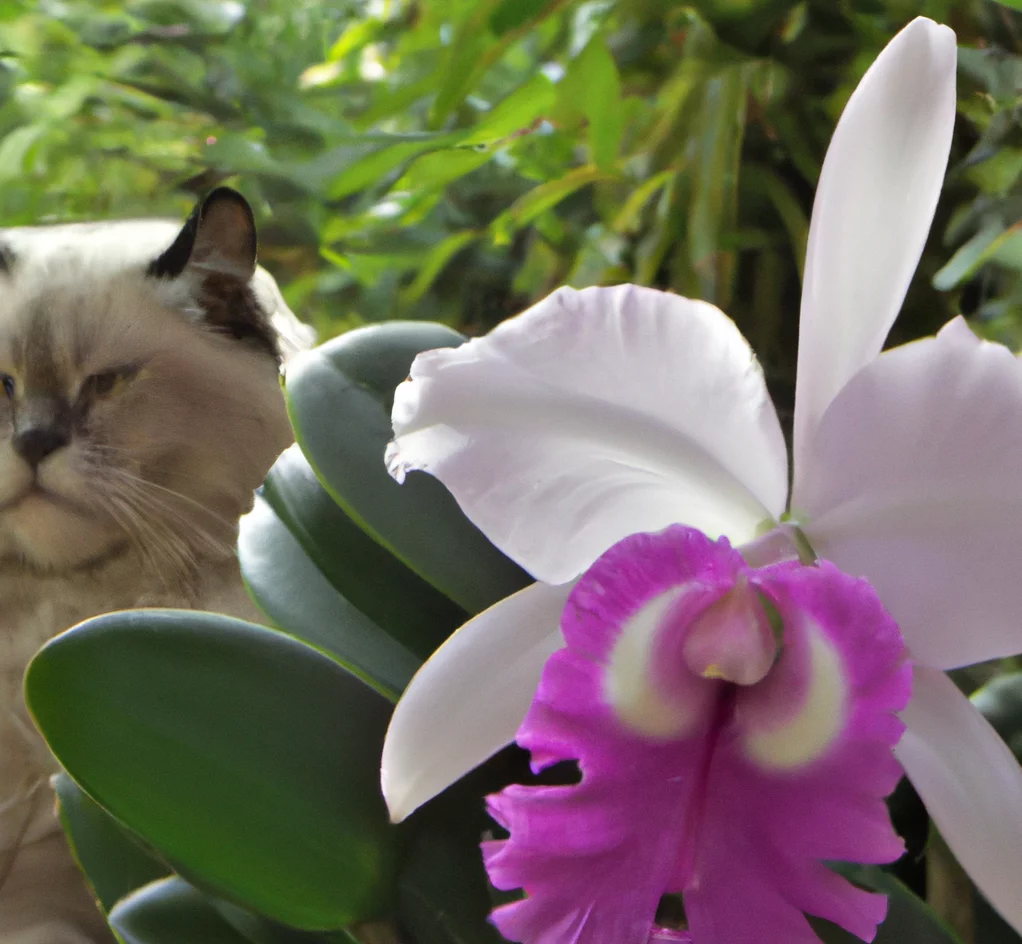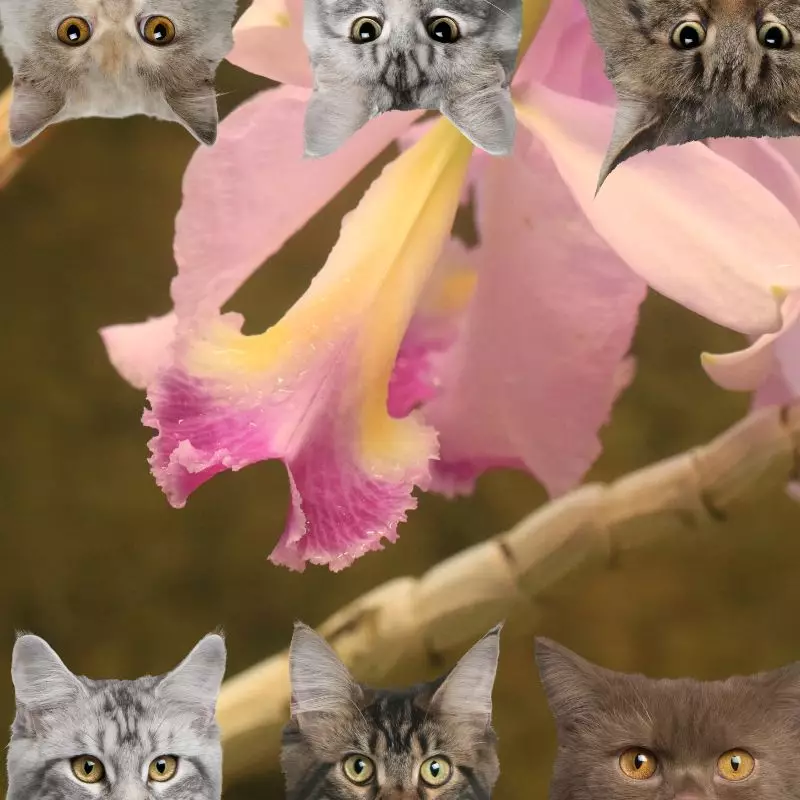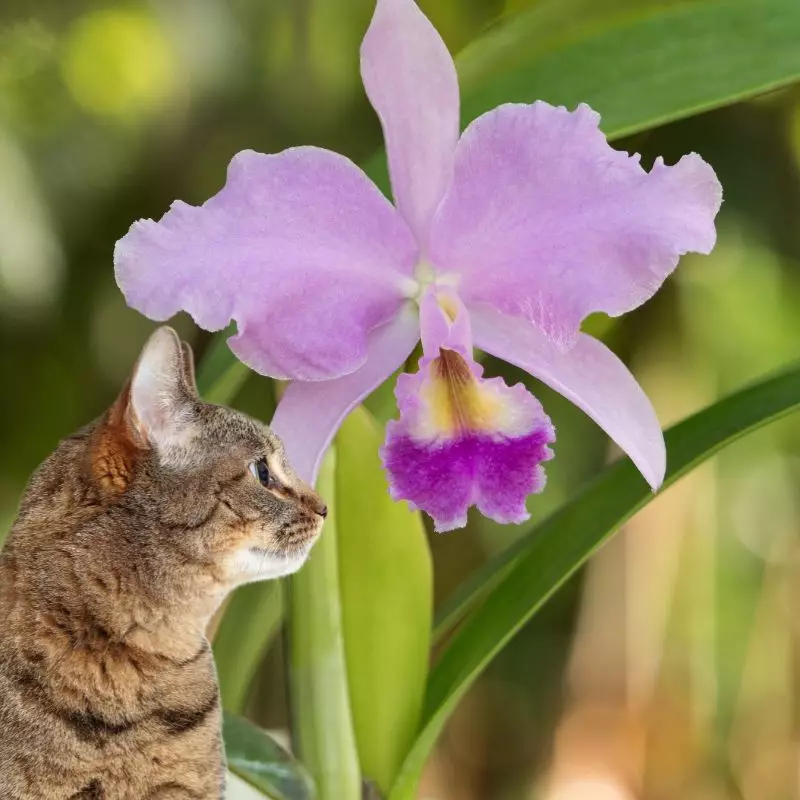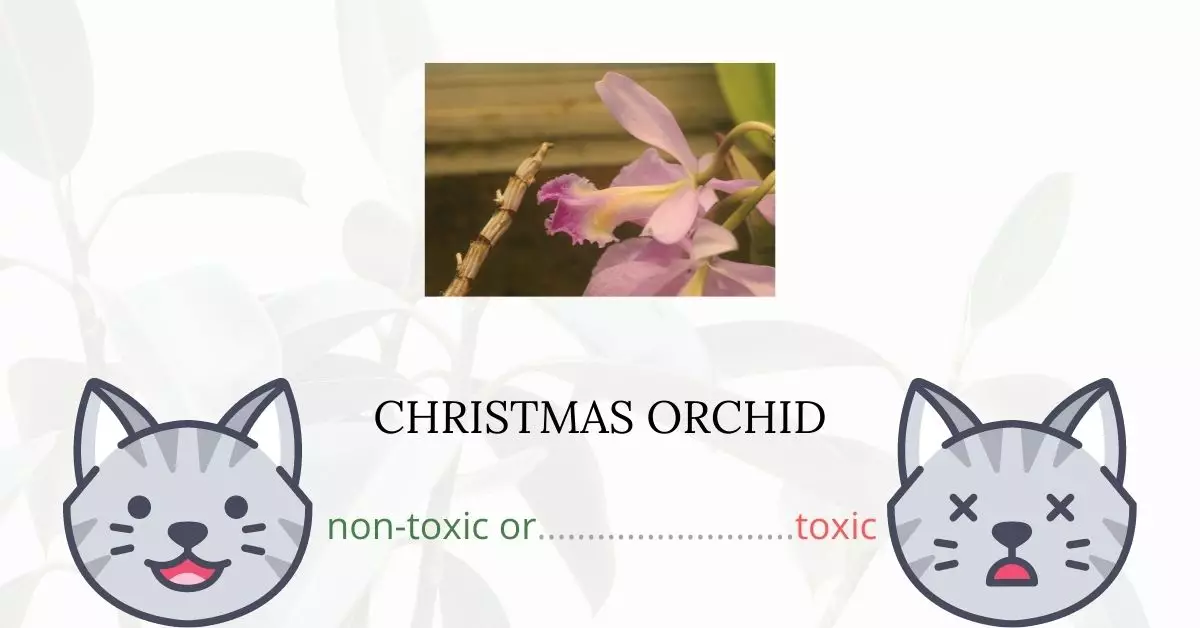No, the Christmas orchid, also known as the winter cattleya, is not toxic to cats.
This assessment comes with high confidence, as this article was crafted in close collaboration with a team of experienced DVMs (doctors of veterinary medicine). Through their expert contributions, we are empowered to offer accurate and current data about the possible risks tied to various plants, including the Christmas Orchid, and their impacts on feline health. Furthermore, in ensuring our information’s accuracy and reliability, we thoroughly researched high-authority websites such as the ASPCA and PetMD.
It is reassuring to note that the Christmas orchid has earned a spot on the ASPCA’s list of non-toxic plants, and this designation extends not only to cats but also to dogs and horses.
The subsequent query on many readers’ minds might be whether or not it’s safe for cats to consume the Christmas orchid. This will be addressed in the following section of our article.
Can Cats Eat Christmas Orchid or Winter Cattleya?

Cats can have a bite of the Christmas orchid without suffering from adverse effects. You should not worry because this plant does not contain toxic properties.
But, keep in mind that plants are not suitable for cats’ digestive tract. Plants are difficult to digest for cats because they are carnivores. If they happen to consume a huge amount of plants, they may suffer from indigestion and other gastrointestinal issues.
What is Christmas Orchid or Winter Cattleya?

Christmas orchid, also known as winter cattleya, is a plant of the Orchidaceae family. It is an epiphytic orchid with succulent leaves that is unique to Colombia. Cattleya trianaei is the botanical name for it. Christmas orchid boasts the most color variety and the best-shaped blooms of any unifoliate cattleya. It comes in a variety of exquisite pastel colours and textures, with flares, feathering in the petals, and the most delicate and sparkling textures. Despite its delicate texture, Cattleya trianaei flowers for the longest period of time of any Cattleya species.
This orchid is a huge, hot to cool growing epiphyte with narrowly clavate, grooved, and gleaming golden orange pseudobulbs. It has a single apical, oblong to elliptic-oblong, rounded and notched apical leaf and blooms in the winter with a few many-flowered inflorescences subtended by a basal sheath bearing huge, fragrant, color changeable flowers.
Christmas orchids thrive in bright, indirect light; when the light levels are perfect, the leaves will be lime green in color. They can survive temperatures ranging from 60 to 90 degrees Fahrenheit and prefer greater humidity levels.
Keeping Cats Away From Christmas Orchid or Winter Cattleya

You may want to protect your winter cattleyas from potential damage because of your cats. Keeping your cats away from your Christmas orchids and other houseplants will not only safeguard them but also your plants.
To accomplish this, you should discipline your cats and train them to stay away from your plants. Once they understand this, it will not only benefit you but it will also benefit both your plants and your cats.
Setting up items that cats dislike near your plants will also help. You may try putting sharp-edge rocks on your plant’s soil to prevent your cat from scratching, digging, or simply messing with your plants.
You can also try using aluminum foil. Cats also hate aluminum foil because of its crinkly sound and texture. They also detest its metallic odor and taste.
Plants to Avoid For Your Cats
If you are a cat owner and unsure if the plants growing in your yard are harmful to your cats, check out this list of toxic plants for cats. You can also check our list of non-toxic plants for cats.





